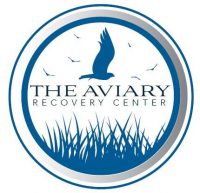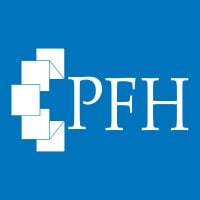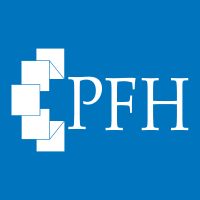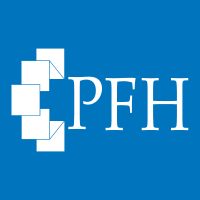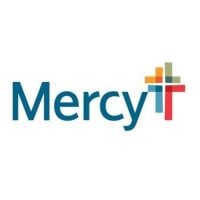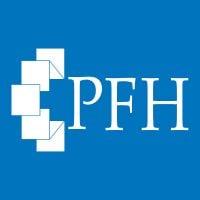Hannibal Council on Alc/Drug Abuse
Drug Rehab Center in Hannibal, Missouri
The Hannibal Council on Alc/Drug Abuse is a CARF-accredited addiction treatment facility in Hannibal, MO that offers a range of evidence-based care plans with specializations in opioid addiction, substance abuse and dual diagnosis, as well as support for aftercare and private health insurance acceptance.
About This Missouri Facility
Hannibal Council on Alc/Drug Abuse (HCADA) has been serving the Hannibal, Missouri community since 1977, emphasizing substance abuse prevention, assessment, and treatment. Located in a setting that fosters recovery and growth, this non-profit organization's rich history and dedication are centered on reducing substance abuse impacts through comprehensive care and educational efforts.
- Accredited by the Commission on Accreditation of Rehabilitation Facilities (CARF), ensuring high-quality services.
- Offers a variety of personalized treatment options, including medication-assisted treatments and individual counseling.
- Engages the community with prevention services, targeting both youth and adults to reduce the risk of addiction.
- Recognized with the "Excellence in Prevention" Award, indicating a strong commitment to preventing substance misuse.
With its CARF accreditation, HCADA meets stringent standards for service and quality, providing evidence-based care tailored to individual needs. Their programs are designed to support those struggling with addiction and co-occurring mental health issues, backed by a license from the Missouri Department of Mental Health.
HCADA addresses a range of addictions, offering specialized treatment for substance use disorders and co-occurring conditions. Methods include individual and group counseling, alongside medication-assisted treatments, with levels of care adjusted to meet the unique recovery needs of each individual.
Genders
Ages
Modality
Additional
Accreditations

CARF
The Commission on Accreditation of Rehabilitation Facilities (CARF) is a non-profit organization that specifically accredits rehab organizations. Founded in 1966, CARF's, mission is to help service providers like rehab facilities maintain high standards of care.
Conditions and Issues Treated
Substance abuse typically leads to addiction, which requires specialized treatment programs at Hannibal Council on Alc/Drug Abuse to address. Many people benefit from inpatient drug rehabilitation, which includes inpatient acute care and residential rehabilitation. Other levels of care include intensive outpatient therapy, individual counseling, and support groups. Family therapy is also an essential part of treatment for substance abuse.
A combination of treatments is often needed to treat drug abuse issues effectively. In the case of drug abuse, there is no easy answer or one-size-fits-all cure.
Opioids are a series of medicines that are used for pain relief. Opioid addiction refers to the compulsive pursuit of opioids, even though they are not medically needed. Medication-assisted therapy at Hannibal Council on Alc/Drug Abuse in Hannibal, MO requires care in which both medications, medication, and behavioral treatments are used.
Substance use disorder falls under two categories: Alcohol or Drug Abuse and Drug Dependence. An individual suffering from a substance use disorder and mental health disorders is said to have a co-occurring disorder or a dual disorder.
Individuals with substance use disorders and mental health problems are said to suffer from a ‘dual diagnosis’. The most frequently identified mental health issues found in individuals with substance use disorders include anxiety, depression, schizophrenia, and schizoaffective disorder.
Levels of Care Offered at Hannibal Council on Alc/Drug Abuse
This center offers a variety of custom treatment tailored to individual recovery. Currently available are Aftercare Support, Detox, Drug Rehab, Dual-Diagnosis, Intensive Outpatient, Outpatient, Partial-Hospitalization, Residential, with additional therapies available as listed below.
Detox is a drug rehab process that is designed to remove the drug addict from the drug safely. The problem with solely using detox as a sobriety tool is that it alone provides no therapy or counseling. If a person goes through detox and returns to their everyday life, they may begin using again once the detox has worn off.
Detox does not help with cravings, so for some addicts, this can be extremely difficult and should be both done and supervised by medical professionals. Aftercare is crucial, so selecting a facility that offers additional services is important.
An Intensive Outpatient Program like what’s offered at Hannibal Council on Alc/Drug Abuse, targets those who need intensive treatment but would rather get it in the comfort of their homes. The treatment programs vary in duration and intensity. They can be tailored to suit the patient’s needs.
When remaining at their job in Hannibal, or continuing their studies, the individual may live with their family while utilizing Hannibal Council on Alc/Drug Abuse‘s outpatient services. Treatment requires counseling the patient at the individual level, in a group setting, about substance addiction, drugs, and therapy sessions.
A partial hospitalization program offered by Hannibal Council on Alc/Drug Abuse is appropriate for patients in and nearby Hannibal, MO that present acute symptoms of addiction. It’s similar to intensive rehab but runs much shorter because the patients don’t need 24-hour monitoring. Partial hospitalizations generally have more freedom when it comes to family visits.
Residential treatment programs are those that offer housing and meals in addition to substance abuse treatment. Rehab facilities that offer residential treatment allow patients to focus solely on recovery, in an environment totally separate from their lives. Some rehab centers specialize in short-term residential treatment (a few days to a week or two), while others solely provide treatment on a long-term basis (several weeks to months). Some offer both, and tailor treatment to the patient’s individual requirements.
Aftercare support involves the support given to a Hannibal, Missouri patient after they complete treatment. It helps them adjust to normal life. It may include setting them up in a halfway house and enrolling them in programs like Narcotics Anonymous (NA) and Alcoholics Anonymous (AA). Hannibal Council on Alc/Drug Abuse‘s patients may also be provided with career training to help them get back into the job force.
Therapies & Programs
Couples therapy aims to rebuild the trust between the partners. Partner’s involvement in the process will result in greater chances of treatment success. Couples therapy addresses financial issues, loss of trust, lack of intimacy, and physical abuse.
Family therapy is a set of therapeutic approaches that assumes that the entire family is a system. It utilizes the strengths and resources of the family to help the patient refrain from resorting to substance abuse. The impact of substance abuse is not just on the patient but on the entire family. Family therapy ensures that the patient gets adequate support from the family members after the treatment making the recovery process sustainable
- Family therapy guides all the members of the family to help the patient.
- It helps to repair relationships and improve communication between family members.
- It helps to keep the patient engaged and motivated throughout the treatment.
Group therapy is an important tool in recovery. Finding a peer group in Hannibal, MO and others who relate to your situation is a fundamental tool for recovery at Hannibal Council on Alc/Drug Abuse. Addiction tends to lead to isolation and feelings of uniqueness. The accountability and friendship that is found in group therapy can be more effective than any single other treatment approach. This is generally introduced early in recovery and is recommended as a lifetime treatment habit.
Trauma therapy is a way of addressing trauma while in a safe situation in order to heal. This may involve Hannibal Council on Alc/Drug Abuse managing individual or group counseling or both. Other forms of therapy have been proven to assist in healing past traumas.
A type of cognitive-behavioral therapy is Dialectical Behavioral Therapy. It is intended for those who are vulnerable to self-harm and suicidal thoughts. Hannibal Council on Alc/Drug Abuse aims to help patients understand the connection between their feelings, emotions, and behaviors and provide them with the tools to make a difference in Hannibal, MO. For those whose addictions and habits originate from severe mental health problems, it is beneficial.
Negative feelings are common in substance abuse disorders. If not recognized, they can cause co-occurring disorders. CBT involves strategies that help to change the thinking and behavioral pattern. It can be administered as a monotherapy as well as a part of combination therapy.
EMDR stands for Eye Movement Desensitization and Reprocessing (EMDR). It is a treatment method to work through traumatic memories to find resolution. This process utilized at Hannibal Council on Alc/Drug Abuse can reframe damaging experiences into something less frightening and reduces the control those memories have over you. It may involve eye movement, hand tapping or other small movements. It may assist in a more rapid healing of these events than other methods.
The first three steps depend on the patient, so they are more specific and situational. The succeeding four steps center on practical issues brought on by substance abuse. Steps 8 and 9 deal with the social and emotional repercussions of addiction, encouraging patients to make amends to people they have wronged. These are followed by two steps revolving around the further exploration and reinforcement of Steps 1 to 9.
The last step requires an individual to extend a helping hand to people who are still in the early stages of their recovery.
Payment Options Accepted
For specific insurance or payment methods please contact us.
Is your insurance accepted?
Ask an expert, call (888) 674-0062
Additional Details
Specifics, location, and helpful extra information.
Hannibal, Missouri 63401 Phone Number(573) 248-1196 Meta DetailsUpdated April 15, 2024
Staff Verified
Patient Reviews
There are no reviews yet. Be the first one to write one.
Hannibal, Missouri Addiction Information
Opioid-related overdoses in Missouri have been increasing steadily for the past three decades. In 2018, more than 1,130 people in Missouri died from opioid abuse. Methamphetamines and marijuana abuse have surpassed opioid abuse in Missouri. Missouri is the number 1 methamphetamine manufacturer in the country with more than 27 meth labs per 100,000 people.
9% of Hannibal, MO, residents admitted to using illicit drugs in the past month, and 14 percent admitted to binge drinking. 18% of adults in Hannibal have had an addiction to drugs or alcohol at some point in their life. About 1 in 10 people enrolled in Medicaid in Hannibal also had a substance abuse disorder. Drug treatment options available in Hannibal include inpatient rehab and detox programs.
Treatment in Nearby Cities
- Sunrise Beach, MO (129.5 mi.)
- St Louis, MO (98.1 mi.)
- Waynesville, MO (136.7 mi.)
- Sainte Genevieve, MO (139.5 mi.)
- Dexter, MO (215.6 mi.)
Centers near Hannibal Council on Alc/Drug Abuse
The facility name, logo and brand are the property and registered trademarks of Hannibal Council on Alc/Drug Abuse, and are being used for identification and informational purposes only. Use of these names, logos and brands shall not imply endorsement. RehabNow.org is not affiliated with or sponsored by Hannibal Council on Alc/Drug Abuse.



